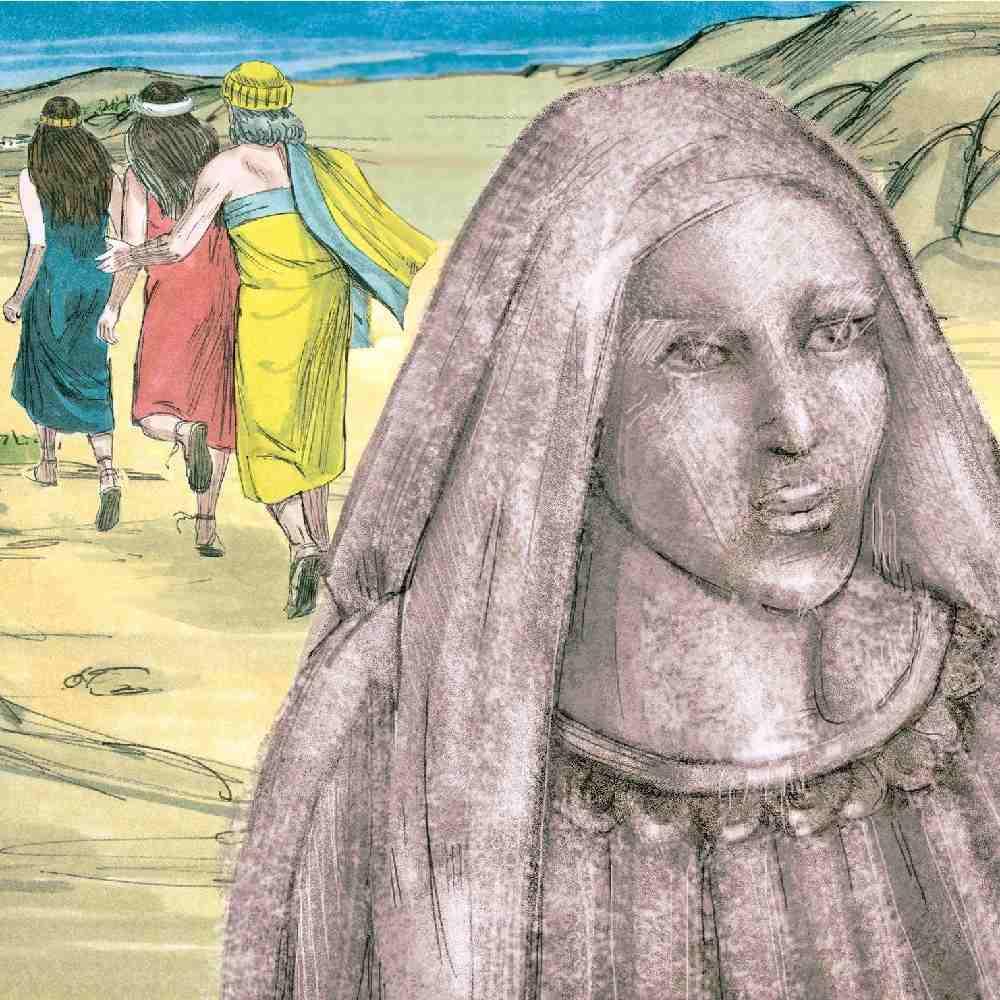
finished
The Wives of LotFemale forms of remembering, testifying and looking at the past

principal investigator / project leader
Ph.D. / Assistant Professor
cultural researcher, sociologist
Full bio project value: PLN 114,471
funding source: National Science Center
discipline: art studies, cultural and religious studies, literary studies
location: Warsaw
duration: 2021 2022 2023
A researcher from SWPS University re-examines the biblical story of Lot’s Wife. The project offers a contemporary reading of a very ancient protagonist and narrative. It also asks a question why such a powerful figure was absent from critical reflection on memory, femininity and trauma.
Project funded by the National Science Center, no. 2021/41/B/HS2/01437.
Project Objectives
The idea of looking backwards at the past, which determines our present moment, and the ways we imagine and shape our futures is challenging yet hopeful in that it seeks to undo the existent legacies by opening up the past, disrupting the collective narrative, and offering a different one.
This disruption is possible thanks to the potential that the analysis of the biblical parable of Lot’s wife offers. Who was this woman? Why did she look back unlike the rest of her fleeing family? Why was she turned into a pillar of salt rather than being annihilated? How does a secular reading of this story nowadays differ from a religious understanding, and what religious interpretations of the parable are out there? If she was to be considered too curious, too attached to her mundane life, too stupid to understand the power of revelation – as some might say – then the question we should pose is: can her curiosity, attachment and refusal to understand (and accept) the circumstances be nowadays treated as a powerful act of defiance, a stance against power, destruction, and patriarchy? What are the benefits of such line of thought? Can Lot’s wife be considered the foremother of what could be framed as the feminist memory? Can we think of her as a paradigmatic witness, a person who wants to see against all odds, and when struck by the horrific image of violence and destruction (of Sodom and Gomorrah) she is petrified, yet does not disappear, but instead – in an act of resilience – she is turned into a monument to her own act, an act of witnessing and, at the same time, an act of lamentation and mourning (based on a straightforward association of salt and tears).
The project offers contemporary reading of a very ancient protagonist and narrative, it also asks a question why such a powerful figure was absent from critical reflection on memory, femininity and trauma (apart from several examples referred to in the project). Developed in the field of visual culture and memory studies, the project concentrates on “looking backward” (a physical and metaphorical body movement) as the most explicit visual marker of relating to what is behind (in the past) but also a gesture signifying curiosity, attachment or longing.
In order to better understand the workings of cultural memory and the conceptualization of gendered historicity, the project examines other figures, such as: Antigone, Eurydice and Angelus Novus, who have been important to cultural history and philosophical thought in the context of power relations, history, memory, death, destruction and resilience. By offering this perspective, I hope to provide a new theory of memory practice or “philosophy of history”, which combines theoretical reflection with critical analysis of works of art and literature. The latter serve here as acts of backward looking, or artistic witnessing that finds its new conceptualization in the framework I propose.

Bojarska, Katarzyna
Principal Investigator
Specialization
cultural researcher, sociologist
First and last name
Katarzyna Bojarska
Academic degree or title
Ph.D. / Assistant Professor
Email
This email address is being protected from spambots. You need JavaScript enabled to view it.
Discipline
culture-and-religion-studies
Role in the Faculty
{"funkcja-na-wydziale0":{"Funkcja":"","\u0141\u0105cznik":"","Nazwa w mianowniku":"Faculty of Humanities in Warsaw"}}
Role in the Department
{"funkcja-w-katedrze0":{"Funkcja":"Coordinator of the Cultural Studies Program","\u0141\u0105cznik":"at the","Nazwa w mianowniku":"Department of Cultural Studies"}}
Role in the Institute
{"funkcja-w-instytucie0":{"Funkcja":"","\u0141\u0105cznik":"","Nazwa w mianowniku":"Institute of Humanities"}}
Role in the Research Center
{"funkcja-w-centrum0":{"Funkcja":"Head","\u0141\u0105cznik":"of the","Nazwa w mianowniku":"Center for Comparative Research on Memory Cultures"}}
Ph.D. / Assistant Professor Katarzyna Bojarskacultural researcher, sociologist
Practical application of results
The project has been inspired, in particular, by the works of Ariella Azoulay, Susan Buck-Morss, Marianne Hirsch and Mieke Bal or Ewa Domańska, and others who have been devoted, on the one hand, to the study of images and visual culture, and on the other to the workings of public and cultural memory or even to rewriting history. The researcher believes in, and hopes to contribute to, engaged, self-reflective work in the discipline of humanities, within the academia and beyond.